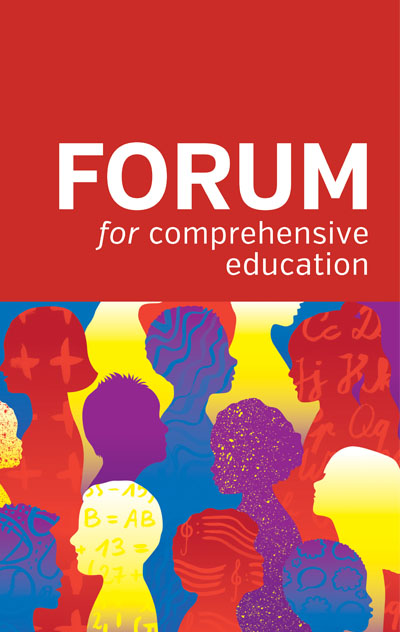
Students Researching 'Problems That Matter' in Their Communities
FORUM - Print ISSN 1474-7685 - Online ISSN 2047-7171
Volume 62 Number 2 (2020)
Students Researching 'Problems That Matter' in Their Communities
MARIE BRENNAN, SIMON TAYLOR, LEW ZIPIN pages 195‑206
DOI: 10.15730/forum.2020.62.2.195
Abstract
In this article, the authors argue that curriculum needs to change, bringing school knowledge into greater proximity to community 'problems that matter' (PTMs) and gathering students, community members, teachers and academics with relevant knowledge to work on the problem. Illustrating this orientation through a collaborative project in a local high school, the authors provide a rationale that links school knowledge with community 'funds of knowledge' - those rich cultural resources that build across family and local-community networks as people apply intelligence to conditions affecting their lives. PTM curriculum activity thus builds capacities for social-justice activism, driven by ethical care for the needs and aspirations of people in communities on the horizons of schools. However, despite the good intentions of many who educate in schools, they are not simply free to take up alternative curriculum practices, even when shown as more socially just, and effective in engaging students and building knowledge abilities useful in their present and future lives. Schools are caught up in power relations that help produce social inequality. Policies from 'above' press down into school leadership decisions and classroom practices, pushing schools into competition with each other rather than fostering care for local communities. The authors argue that schools owe an ethical duty of care to the communities, especially marginalised groups, that they are supposed to serve. Supporting young people's agency in collaborative work on meaningful PTMs can give schools impetus to align with better social purposes for curriculum knowledge activity.
To cite this article
MARIE BRENNAN, SIMON TAYLOR, LEW ZIPIN (2020) Students Researching 'Problems That Matter' in Their Communities, FORUM, 62(2), 195-206 . https://doi.org/10.15730/forum.2020.62.2.195
